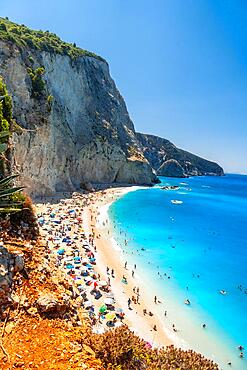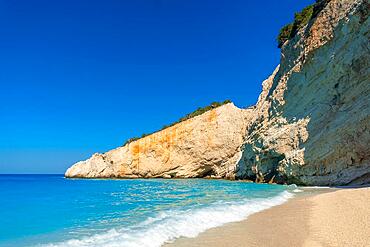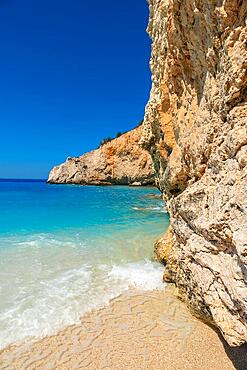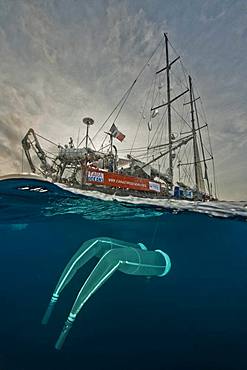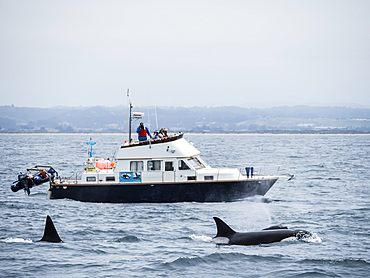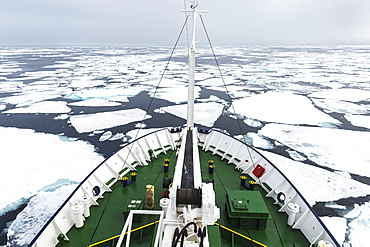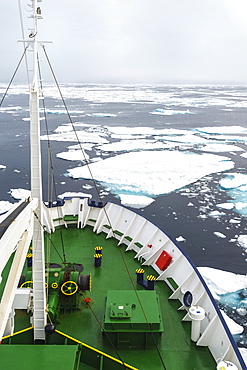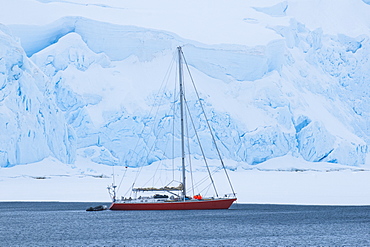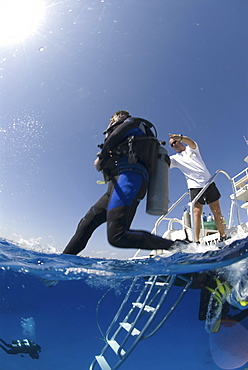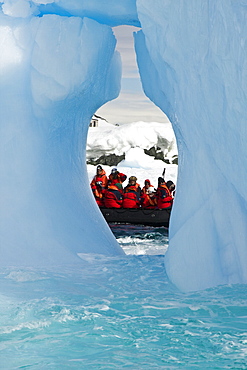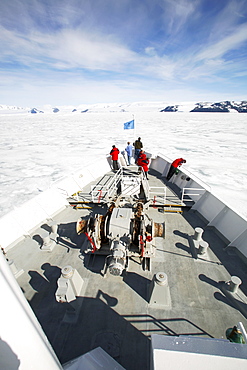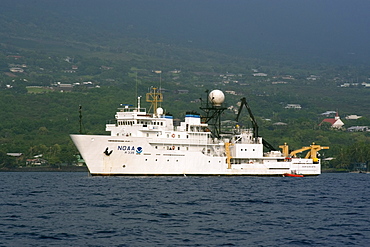Recent searches
Loading...
832-403436 - Tourist woman in a boat on a tourist excursion on Lake Shkoder in Shiroka. Albania
832-403383 - Panoramic view from above of Porto Katsiki beach on Lefkada island in summer, Greece, Europe
832-403382 - Panoramic view from above of Porto Katsiki beach on Lefkada island in summer, Greece, Europe
832-403372 - Porto Katsiki beach on Lefkada island in summer without people, Greece, Europe
832-403373 - Sides of the cliffs of Porto Katsiki Beach on the island of Lefkada, Greece, Europe
1112-5983 - The boat house at the Argentine Research Station Base Brown, Paradise Bay, Antarctica, Polar Regions
860-287450 - Tara Oceans Expeditions - May 2011. Tara with deployed plancton nets. On "station", the boat is drifting without engine or sails. Tara Oceans, a unique expedition: Tara Oceans is the very first attempt to make a global study of marine plankton, a form of sea life that includes organisms as small as viruses and bacterias, and as big as medusas. Our goal is to better understand planktonic ecosystems by exploring the countless species, learning about interactions among them and with their environment. Marine plankton is the only ecosystem that is almost continuous over the surface of the Earth. Studying plankton is like taking the pulse of our planet. Recently, scientists have discovered the great importance of plankton for the climate: populations of plankton are affected very rapidly by variations in climate. But in turn they can influence the climate by modifying the absorption of carbon. In a context of rapid physico-chemical changes, for example the acidification observed today in the world's oceans, it is urgent to understand and predict the evolution of these particular ecosystems. Finally, plankton is an astonishing way of going back in time ? a prime source of fossils. Over the eons, plankton has created several hundred meters of sediment on the ocean floors. This allows us to go back in time, to the first oceans on Earth, and better understand the history of our biosphere. More than 12 fields of research are involved in the project, which will bring together an international team of oceanographers, ecologists, biologists, geneticists, and physicists from prestigious laboratories headed by Eric Karsenti of the European Molecular Biology Laboratory. Galapagos
1112-4206 - Adult killer whales (Orcinus orca) near research boat in the Monterey Bay National Marine Sanctuary, California, United States of America, North America
971-187 - King Edward Point research station with fisheries patrol boat Pharos alongside at the jetty, South Georgia, Polar Regions
832-380490 - Expedition Boat navigating through melting pack ice, Arctic Ocean, 81° North and 26° East, Svalbard Archipelago, Norway, Europe
832-380489 - Expedition Boat navigating through melting pack ice, Arctic Ocean, 81° North and 26° East, Svalbard Archipelago, Norway, Europe
816-4447 - Sailing boat below a huge icefield near Port Lockroy research station, Antarctica, Polar Regions
816-4459 - Dark clouds over the mountains and glaciers of Port Lockroy research station, Antarctica, Polar Regions
816-4452 - Dark clouds over the mountains and glaciers of Port Lockroy research station, Antarctica, Polar Regions
990-135 - The Humpback whale (Megaptera novaeangliae) named Tic-Tac-Toe leaps out of the water right beside the research boat taking a close look at the photographer. St. Lawrence estuary, Canada
832-87149 - Icebergs near Pleneau Island, Lemaire Channel, Antarctic Peninsula, Antarctica
930-45 - A neonate (newborn) bottle nose calf surfaces beside a research boat next to its mother, Moray Firth, Scotland.
939-25 - Humpback Whale (Megaptera novaeangliae) sounding and researchers. Alaska
988-165 - Research boat. "Silurian" is the research boat of the Hebridean Whale and Dolphin Trust, based in Tobermory, Isle of Mull. Hebrides, Scotland
988-164 - Research boat. "Forever Changes" is the research boat of the Wildlife Trusts, engaged here in basking shark work. Hebrides, Scotland
1036-213 - Whale biologists working from research yacht, Silurian, in the Hebrides, Scotland.
1036-208 - New Zealand Whale and Dolphin Trust working with Hectors dolphins (Cephalorhynchus hectori) Akaroa, South Island: New Zealand.
1036-210 - Aerial shot of the research yacht, The Song of the Whale, being investigated by a Minke whale (Balaenoptera acutorostrata), while one of the crew tries to get a closer look fro
1036-212 - Research vessel, Silurian, under sail with observers on the deck and up the mast. Hebrides, Scotland
1036-209 - Research yacht monitoring Killer whale (Orcinus orca) activity during the winter months in the fjords of northern Norway. Tysjford, Norway.
1036-207 - New Zealand Whale and Dolphin Trust working with Hector's dolphins (Cephalorhynchus hectori)
1034-19 - orca/ killer whale (Orcinus orca) 'Luna' (L98), 5-year old lone male interacting with people's feet in Nootka Sound, West Vancouver Island, Canada, North Pacific.
1034-21 - orca/ killer whale (Orcinus orca) 'Luna' (L98), 5-year old lone male interacting with Ed Thornburn in Nootka Sound, West Vancouver Island, Canada, North Pacific.
1034-18 - orca/ killer whale (Orcinus orca) 'Luna' (L98), 5-year old lone male interacting with Ingrid Visser (photo by T. Hardie) in Nootka Sound, West Vancouver Island, Canada, North Pacific.
969-206 - Loggerhead Turtle (Caretta caretta) being captured for tagging project. Azores
970-784 - Technical Divers using Trimix, entering water from dive boat, Divetech, Grand Cayman, Cayman Islands, Caribbean
979-2420 - Zodiac and iceberg detail in and around the abandoned British research base "W" in Crystal Sound near the Antarctic Peninsula
979-2342 - The National Geographic Endeavour breaking through new fast ice around the Antarctic Peninsula.
979-3455 - Lindblad Expeditions ship the National Geographic Polaris in the waters surrounding the Galapagos Island Archipelago, Ecuador
979-7771 - United States research base at Palmer Station on Anvers Island, Antarctica, Southern Ocean
979-4015 - Natural history staff from the Lindblad Expedition ship National Geographic Endeavour doing various things in and around the Antarctic Peninsula
979-2328 - The commercial whale watching vessel "Orca Odyssey", based in Juneau, Southeast Alaska, USA. In the summer of 2006 this vessel struck a humpback whale while on a commercial whale watch.
979-4017 - Natural history staff from the Lindblad Expedition ship National Geographic Endeavour doing various things in and around the Antarctic Peninsula
979-2040 - Turtle researchers from the NGO Pro Caguama study and capture the critically endangered Loggerhead Turtle (Caretta caretta) from the town of Puerto Lopez Mateos
979-4027 - Natural history staff from the Lindblad Expedition ship National Geographic Endeavour in LeMaire Channel on the western side of the Antarctic Peninsula
979-2406 - Lindblad Expeditions guests visiting the Argentine research station Almirante Brown in Paradise Bay in Antarctica as part of expedition travel. NO MODEL RELEASES FOR THIS IMAGE.
979-4013 - Natural history staff from the Lindblad Expedition ship National Geographic Endeavour doing various things in and around the Antarctic Peninsula
979-2344 - The National Geographic Endeavour breaking through new fast ice around the Antarctic Peninsula. Note the orange hull paint left on the ice where the bow has pushed through.
979-4026 - Natural history staff from the Lindblad Expedition ship National Geographic Endeavour in LeMaire Channel on the western side of the Antarctic Peninsula
979-3246 - Adult reddish egret (Egretta rufescens) hunting for small fish in the shallow waters of Puerto Don Juan in the upper Gulf of California (Sea of Cortez), Baja California Norte, Mexcio.
970-829 - Cayman Islands Technical Diver entering water with assistance, Divetech, Grand Cayman Island, Cayman Islands, Caribbean
979-2524 - The Lindblad Expedition ship MS Endeavour in Paradise Bay on the Antarctic Peninsula.
979-3424 - The Lindblad Expeditions ship National Geographic Sea Lion operating kayaks in Southeast Alaska, USA. Pacific Ocean.
979-7769 - United States research base at Palmer Station on Anvers Island, Antarctica, Southern Ocean
979-3454 - Lindblad Expeditions ship the National Geographic Polaris in the waters surrounding the Galapagos Island Archipelago, Ecuador
979-2340 - The National Geographic Endeavour breaking through ice floes in the Weddell Sea around the Antarctic Peninsula. Guests are on the bow watching the process.
979-4028 - Natural history staff from the Lindblad Expedition ship National Geographic Endeavour in LeMaire Channel on the western side of the Antarctic Peninsula
979-4029 - Natural history staff from the Lindblad Expedition ship National Geographic Endeavour doing various things in and around the Antarctic Peninsula
979-3453 - Lindblad Expeditions ship the National Geographic Polaris in the waters surrounding the Galapagos Island Archipelago, Ecuador
979-2341 - The National Geographic Endeavour breaking through fast ice in the Weddell Sea around the Antarctic Peninsula. Guests are on the bow watching the process.
979-7783 - The U.S. research ship Laurence M. Gould at Palmer Station in Antarctica, Southern Ocean
979-2101 - The National Geographic Endeavour anchored at the old Norwegian whaling station at Whaler's Cove, Deception Island
979-512 - Humpback Whale (Megaptera novaeangliae) tail-slapping near researchers in Chatham Strait, Southeast Alaska, USA.
979-4014 - Natural history staff from the Lindblad Expedition ship National Geographic Endeavour doing various things in and around the Antarctic Peninsula
979-4025 - Natural history staff from the Lindblad Expedition ship National Geographic Endeavour in LeMaire Channel on the western side of the Antarctic Peninsula
979-3423 - The Lindblad Expeditions ship National Geographic Sea Lion operating in Southeast Alaska, USA. Pacific Ocean.
979-3244 - Adult reddish egret (Egretta rufescens) hunting for small fish in the shallow waters of Puerto Don Juan in the upper Gulf of California (Sea of Cortez), Baja California Norte, Mexcio
979-2612 - The National Geographic Endeavour at sunset in the Lemaire Channel near the Antarctic Peninsula.
979-2343 - The National Geographic Endeavour and its inflatable Zodiacs breaking through fast ice in and around the Antarctic Peninsula.
979-2044 - Young California Sea Lion (Zalophus californianus) hauled out on a Zodiac surrounded by snorkelers in the Gulf of California (Sea of Cortez), Mexico.
920-1518 - Scientists and graduate student collecting hammerhead shark pups for research, Hawaii Institute of Marine Biology, Kaneohe, Oahu, Hawaii, United States of America, Pacific
920-1515 - Research scientist catching stingray, Kaneohe bay, Oahu, Hawaii, United States of America, Pacific
920-1512 - NOAA research vessel, Kealakekua Bay, Big Island, Hawaii, United States of America, Pacific
815-437 - Primavera Research Station, Antarctica, Polar Regions
788-11458 - Buildings near a dock, Maryland Science Center, Baltimore, Maryland, USA
You reached the end of search results


